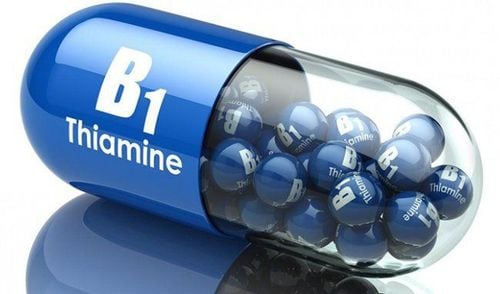Polyneuropathy is also known by another name, polyneuropathy, which is manifested by a disorder and the function of the peripheral nerves is adversely affected.
1. Causes of polyneuropathy
When peripheral nerves are damaged, it will affect the functions of organs in the body. For example, when the nerve with motor function is damaged, the patient will have reduced movement, the function of that nerve is sensation, the symptom will be sensory disturbance.
Polyneuropathy occurs due to many different causes, especially in injuries and diseases such as diabetes, vitamin B1 deficiency, lead poisoning, alcoholism (especially in people who have been addicted to alcohol for 10 years or more)… Polyneuropathy due to vitamin B1 deficiency is common and common in many people such as pregnant women.
2. Why does vitamin B1 deficiency cause the disease?
Vitamin B1 deficiency is one of the causes of polyneuropathy. The disease is also known as beriberi. The disease is common in pregnant women, diets containing highly milled rice, poor absorption by the patient, inadequate diet, occurring in people with vitamin deficiency in the period of 2-3 months.
Symptoms of polyneuropathy due to vitamin B1 deficiency include edema, vasomotor disorders. The disease can last 2-3 months. The disease should be detected and treated promptly.

Vitamin B1 deficiency is one of the causes of polyneuropathy.
3. Treatment of polyneuropathy due to vitamin B1 deficiency
In mild cases, just taking vitamin B1 at a dose of 100mg per day continuously for 2-3 weeks can help the disease recover. In severe cases, especially when suffering from heart disease, you must use B1 in the form of intramuscular injections and according to the doctor’s instructions.
When injecting vitamin B1 in ampoules intramuscularly after 24-36 hours, the symptoms have begun to decrease and improve better. Neurological symptoms are very sensitive to treatment but the time to fully recover is very slow. After the injection, you must continue taking vitamin B1 for 1-3 months depending on the severity. Usually, when the symptoms have subsided by about 70-80%, we can stop using the drug and switch to nutritional treatment.
With edema symptoms, the symptoms will decrease when injecting vitamin B1 after 3 days. And your legs will be less swollen after the first 2 weeks. You should only stop using the drug when prescribed by your doctor and to maximize the effectiveness of the drug, you should maintain the frequency of use during the day. The disease will progress better if used in combination with diuretics. You should combine it with diet and rest for the best results.
After stopping using oral and injectable vitamin B1, you need to pay attention to supplementing vitamins through nutrition, eating foods rich in vitamin B1. You need to supplement your diet with a full range of nutrients, especially B1, and should not use rice that is too finely ground because it can lose the nutrients in it. Add more fresh, clean fruits.





